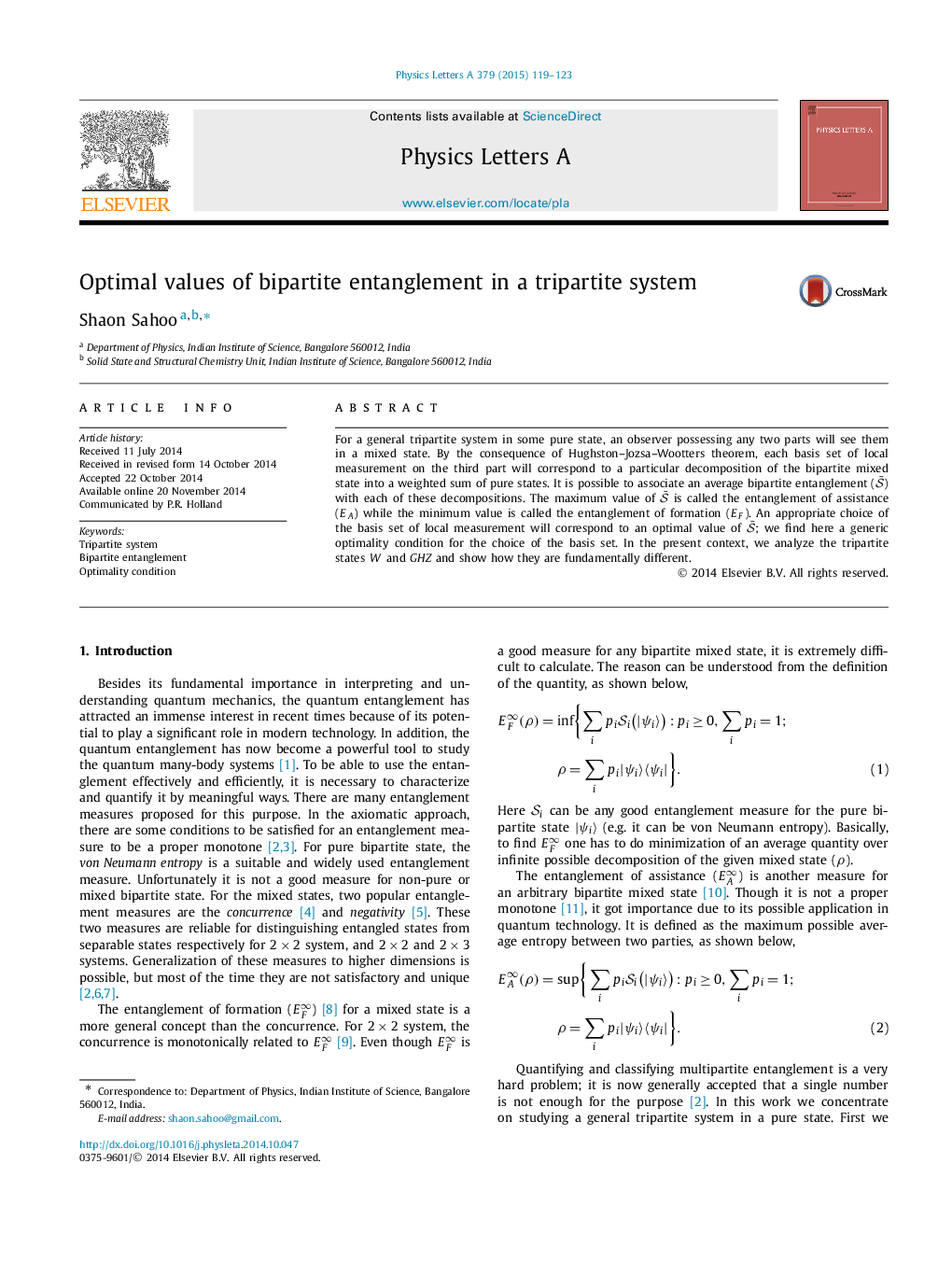| Article ID | Journal | Published Year | Pages | File Type |
|---|---|---|---|---|
| 1863795 | Physics Letters A | 2015 | 5 Pages |
•We study optimal values of bipartite entanglement in a tripartite system.•Using the Hughston–Jozsa–Wootters theorem, an optimality condition is derived.•This condition will help us study mixed bipartite states using ancilla.
For a general tripartite system in some pure state, an observer possessing any two parts will see them in a mixed state. By the consequence of Hughston–Jozsa–Wootters theorem, each basis set of local measurement on the third part will correspond to a particular decomposition of the bipartite mixed state into a weighted sum of pure states. It is possible to associate an average bipartite entanglement (S¯) with each of these decompositions. The maximum value of S¯ is called the entanglement of assistance (EAEA) while the minimum value is called the entanglement of formation (EFEF). An appropriate choice of the basis set of local measurement will correspond to an optimal value of S¯; we find here a generic optimality condition for the choice of the basis set. In the present context, we analyze the tripartite states W and GHZ and show how they are fundamentally different.
